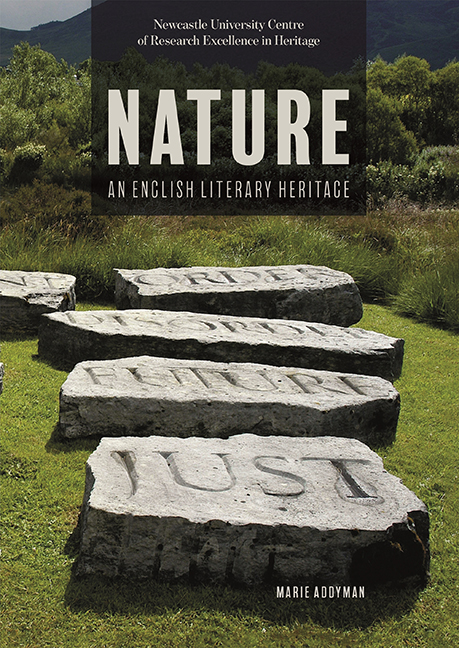Book contents
- Frontmatter
- Dedication
- Contents
- Acknowledgements
- Preface
- Introduction: Infected Minds
- I Nature as (A)morality and Mortality in Early Modern England
- II Living the Wild Life in the Nineteenth Century
- III Nature and History: Towards the Anthropocene
- Afterword: Apokalypsis
- Bibliography
- Index
- Previous Titles
Introduction: Infected Minds
Published online by Cambridge University Press: 11 June 2021
- Frontmatter
- Dedication
- Contents
- Acknowledgements
- Preface
- Introduction: Infected Minds
- I Nature as (A)morality and Mortality in Early Modern England
- II Living the Wild Life in the Nineteenth Century
- III Nature and History: Towards the Anthropocene
- Afterword: Apokalypsis
- Bibliography
- Index
- Previous Titles
Summary
Compiling his Album of Symbolic Nature, William Cronon (1996) wrote that
The impulse to use elements of the natural world to serve as cultural symbols is as old as human language itself. But the uses to which nature can be put are always specific to particular cultures at particular moments in their histories. What we see in nature and what we say about it reveal as much about how we think we are as about what we think nature is. (Cronon 1996, 219)
Cronon's observation was pre-empted more than two centuries previously in a work written in 1710 by the Neapolitan academic Giambattista Vico (1668–1744). His esoteric book On the Most Ancient Wisdom of the Italians Unearthed from the Origins of the Latin Language is difficult to access even in a university library, though it has been translated into English and published in paperback. It is only ever going to be read in full by a few scholars, and yet two phrases from it have achieved the wider circulation given by the internet: verum esse ipsum factum (‘the true is precisely what is made’) (Vico 1988, 46); verum et factum convertuntur (‘the true and what is made [are] convertible’) (Vico 1988, 47). Vico distinguishes human truth from that which comes from God, which is ‘begotten’ in its entirety, not made. Mankind, on the other hand, can only investigate ‘the nature of things’ via the structures of his own mind which he unknowingly and inevitably imposes upon it: ‘human science was born of the vice of our mind’ (Vico 1988, 52). Or, as the recalcitrant English poet William Blake (1757–1827) would put it at the beginning of the next century, ‘The eye altering alters all’ (Blake 1965, 426; The Mental Traveller [1803], line 62).
Vico's pronouncements seem to pre-empt modern post-structuralist theory, but in its own terms it can be hard for us as twenty-first-century readers to understand, often lacking the background in classics and early-modern philosophy it appears to require. It was, moreover, immediately contested by some of Vico's contemporaries who – panic-stricken, one feels – tackled him on the grounds of etymology to refute his claim.
- Type
- Chapter
- Information
- Nature: An English Literary Heritage , pp. 1 - 18Publisher: Boydell & BrewerPrint publication year: 2021

